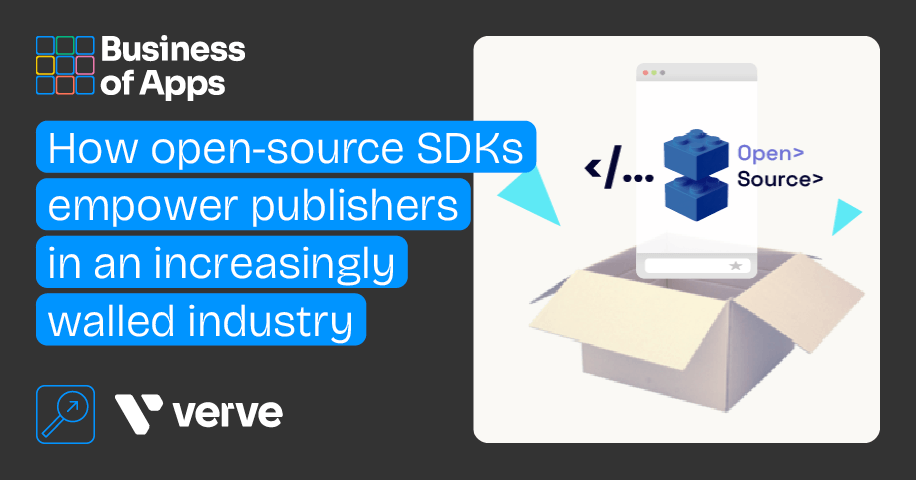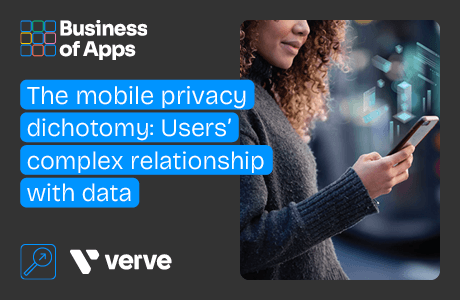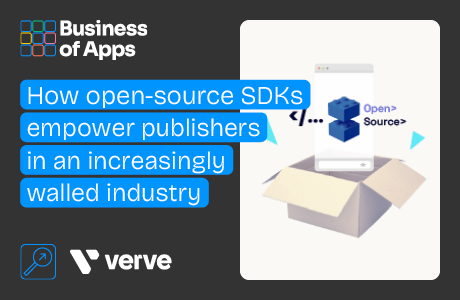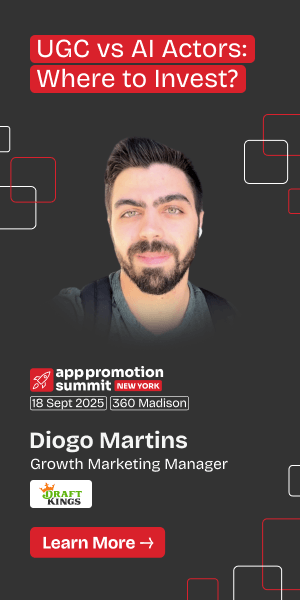Navigating ad tech can often feel like wandering through a labyrinth. Today’s tech giants have long acted as walled gardens that dominate the programmatic landscape. Publishers have also begun building their own mini-walled gardens in light of the uncertain future of third-party cookies. And retail media networks are creating their own closed ecosystems for data and targeting purposes.
But all hope is not lost — programmatic ad spending in walled gardens peaked in 2020 and has been steadily declining ever since Apple implemented its iOS privacy changes with ATT in April 2021. And with over 4 million apps available for download via iOS and Android, it’s not feasible to expect individual publishers to establish the infrastructure required to create their own walled gardens.
So what’s the key to breaking through the rubble as these walls slowly crumble around us? Both app publishers and ad tech partners must fight against the exclusivity and secrecy of today’s walled gardens with openness and transparency — and an important tool for accomplishing this is an open-source ad SDK.
Open source vs. closed source
The Facebook–Cambridge Analytica data scandal opened the public’s eyes to how their data can be misused by the companies they trust, and in the 8 years since, there have continued to be numerous cases of data misuse. Since GDPR came into effect in July 2018, it has accumulated over $4.4 billion in fines from companies that breached its privacy policies, a portion of which included ad tech companies being penalized for how they process personal data for targeted advertising.
The best defense against such misuse of data is complete transparency. And in order to achieve transparency at every point in the programmatic supply chain, a crucial link is an open-source ad SDK. Let’s start by understanding what makes open-source SDKs so unique.
- Open-source SDKs have publicly accessible source code. It is freely available for anyone to look at, and anyone can suggest modifications or improvements. It is common practice for users to adjust an open-source SDK’s code based on their individual needs. The code is also openly available for audits by security companies or others monitoring consumer data protection.
- Closed-source SDKs, also known as proprietary SDKs, are not publicly accessible. Users cannot view or modify the source code, giving the owner of the SDK complete control and secrecy over what exactly is included.
In an industry that is becoming increasingly walled, open-source software is an important key to transparency and customization for publishers.
How do publishers benefit from open-source ad SDKs?
Companies that invest in making their SDK open-source show a real commitment to their supply partners. Here are the ways in which publishers benefit from open-source ad SDKs.
Transparency
When integrating an ad SDK, publishers must know exactly what they are getting. And that’s only truly possible with an SDK that is open source.
When publishers can see exactly how the SDK works, any potential concerns about unwanted code and functionalities are eliminated. It also protects against companies making baseless claims to promote their products.
Open-source ad SDKs also allow publishers to know exactly what data the SDK is collecting about their users, which is crucial as the industry becomes more privacy-centric. Gone are the days of blind trust. Every player in the programmatic supply chain must be held accountable for following current data privacy regulations, and open-source code is the best way for ad tech companies to show their partners that they are doing just that.
Continuous improvement
Another key feature of open-source SDKs is their ability to be continuously improved in collaboration with the users. Since they are able to see the code, developers can contribute their own fixes and improvements back to the product.
Control and customization
When it comes to mobile app monetization, there’s no one-size-fits-all solution. The ability for developers to contribute to the ad SDK’s code means that they can tailor the code to fit their own unique needs. Instead of being stuck with a black box, each publisher can pick and choose which pieces of the SDK fit their app and their monetization strategy.
In the case of mobile app monetization, this puts unparalleled control over the configuration of ads in the hands of the publisher. They can adjust the code to include and exclude exactly what is required for their app’s monetization strategy.
Security
Publishers are becoming increasingly privacy-focused, and rightly so. It is a common myth that open-source software is not secure. While closed-source software may provide a level of security through obscurity, that alone is not enough.
Nobody should be asked to blindly trust that all of their business partners are following the current privacy and security standards — and with an open-source ad SDK, publishers don’t have to. Developers can audit the open-source SDK’s code to ensure that it meets all of their company’s security standards.
Future-proof your app’s monetization
Open source is not just a type of code, it’s an ecosystem based on transparency and the collective pursuit of building something meaningful. Open-source ad SDKs, such as Verve’s HyBid SDK, are a key part of a future-proof app monetization strategy.
As a leading open-source platform, we empower developers with full visibility into our SDK. The HyBid SDK provides our supply partners with transparency and control. Publishers can freely explore our codebase on GitHub, gaining insight into the SDK data and security practices.
Users can also provide feedback directly to our development team to help shape the future of the SDK. And by integrating the HyBid SDK, publishers gain complete control over their ad configuration.
Want to learn more?
To implement the HyBid SDK or select modules, follow the instructions on our documentation page. To learn more about the SDK and all it offers, please contact us here.












